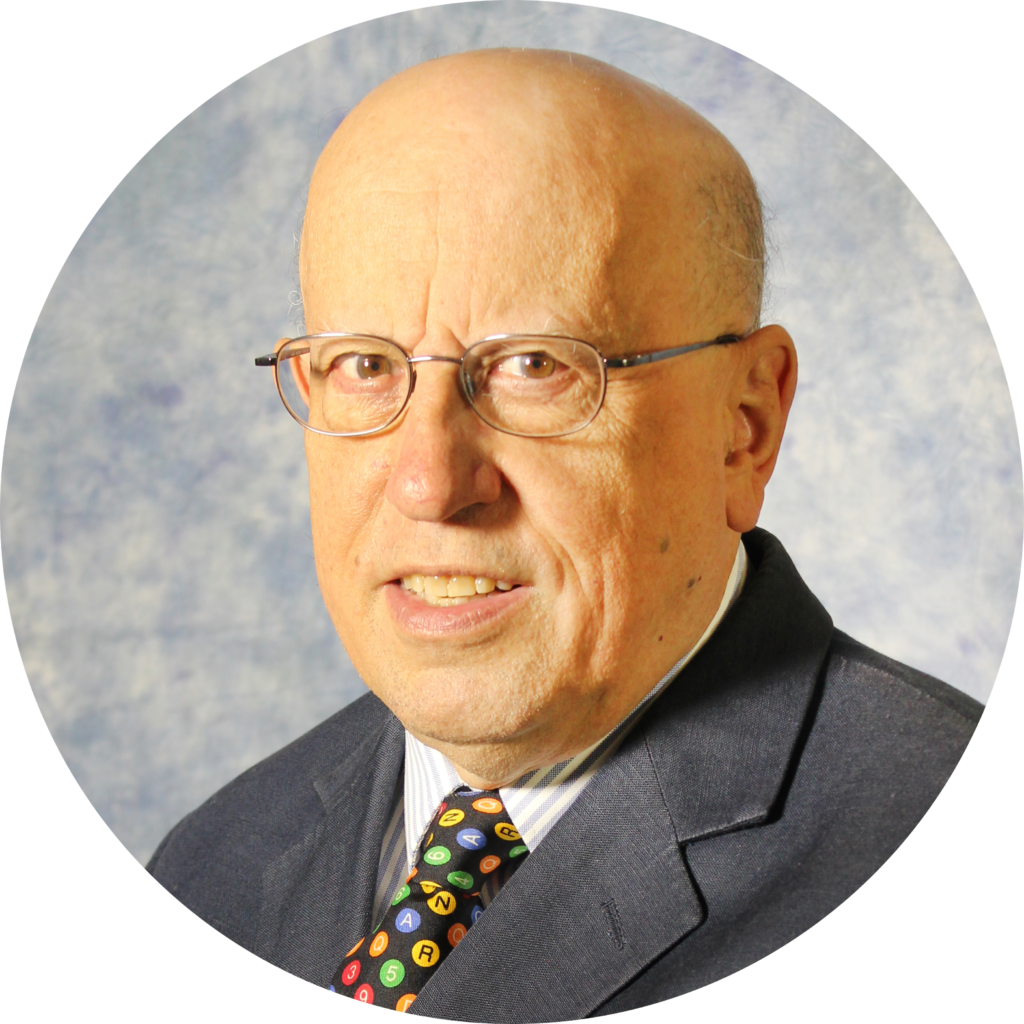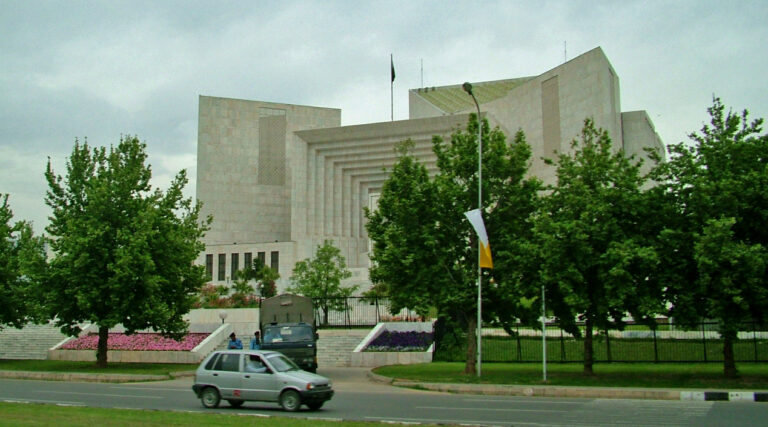
Religious Charter Schools: A New Horizon for the Establishment Clause and School Choice
Charles J. Russo
Oklahoma City’s Skyline by Oklahoma City Convention and Visitors Bureau (CC BY-SA 3.0).
The school choice movement spurred on by Milton Friedman’s highly influential 1955 essay, The Role of Government in Education, affords parents greater opportunities to select where their children can be educated. A key component in this movement are charter schools. Charter schools are nonsectarian public schools of choice operating under performance contracts or chartered with a public sponsor, which is usually a local school boards or university. They are largely exempt from many state standards such as curricula and teacher qualifications, thereby giving educators and parents greater control over what goes on in these schools. However, educational contracts limit how many charter schools can operate and for how long, ordinarily about three to five years in length. Unlike traditional public schools, charters can be revoked or nonrenewed for failing to achieve their performance goals on student achievement.
The creation of the nation’s first ever faith-based charter school, St. Isidore of Seville Catholic Virtual School in Oklahoma, presents a significant array of constitutional questions under the Establishment Clause, which has, until recently, placed fairly significant limits on ad to faith-based schools and their students. St. Isidore’s also raises educational issues associated with faith-based charter schools and their potential growth. This article examines the history of charter schools and the dispute leading up to oral arguments before the Supreme Court of Oklahoma which occurred on April 2, 2024, over whether it can open this fall. This essay considers issues surrounding whether the school will be allowed to operate.
A Brief History of Charter Schools
Discussions of charter schools began in the United States as early as the 1970s. However, it was not until Minnesota adopted in 1991 the first law enabling their creation that charter schools began to proliferate as part of the parental choice (school choice) movement bringing decision-making on all school matters to the local level. Presently, almost 8,000 public charter schools educate about 3,700,000 students, or 7.4% of children, enrolled in forty-six jurisdictions plus the District of Columbia, Guam, and Puerto Rico; only Nebraska, North Dakota, South Dakota, and Vermont lack charter school laws. Private charter schools are rare and most have become public, especially in the Northeast.
Interpretation of the Establishment Clause, according to which “Congress shall make no law respecting an establishment of religion,” has led to voluminous litigation in which, depending on its composition, the Court has allowed less or more aid to faith-based schools and their students. As the charter schools and parental choice movement grew, three recent Supreme Court decisions – Trinity Lutheran, Espinoza, and Carson highlight the Court’s expansion of the limits of the Child Benefit Test, resulting in greater aid to faith-based schools and their students.
Without using the term explicitly, the Justices enunciated the Child Benefit Test in the initial case of its modern First Amendment Religion Clause jurisprudence, 1947’s Everson v. Board of Education. Everson affirmed the constitutionality of the statute authorizing local boards to make arrangements to transport children to and from their faith-based schools because they, rather than their schools or parents, were the primary beneficiaries of the aid.
Following Everson, the Justices upheld the loan of text books for secular instruction to all students, including those in faith-based schools, in 1968’s Board of Education v. Allen. After adopting the now repudiated tripartite Lemon v. Kurtzman test in 1971 that created a great deal of judicial confusion, the Court placed significant limits of aid to faith-based schools and their students. According to the Lemon test, any time the government and religion interact, there must be a secular legislative purpose, a principle or primary effect neither advancing nor inhibiting religion, nor excessive entanglement of government and religion.
Under Lemon, the Court banned various types of aid to students who attended faith-based schools including transportation to field trips in 1977’s Wolman v. Walter and the on-site delivery of services for those who were educationally disadvantaged in 1985’s Aguilar v. Felton for fear of violating the Establishment Clause. The Court’s 1997 judgment in Agostini v. Felton, which dissolved its injunction in Aguilar, allowed the delivery of remedial services on neutral bases to needy students in faith-based schools. The Agostini decision ushered in the current era of increased aid to religious schools under the Establishment Clause.
2017’s Trinity Lutheran Church of Columbia v. Comer was the initial case in this trilogy, alongside Espinoza and Carson. The Supreme Court ruled that officials in Missouri could not deny generally available aid to a year-round, faith-based preschool and daycare center’s playground simply because of its religious affiliation. Roberts emphasized that denying an entity “a public benefit for which it is otherwise qualified, solely because it is a church, is odious to our Constitution all the same, and cannot stand.”
Three years later, in Espinoza v. Montana Department of Revenue, relying partially on Trinity Lutheran, the Supreme Court reasoned that officials could not deny parents and scholarship organizations the opportunity to contribute to a tax credit program to enable students to attend faith-based schools. Roberts wrote that “bar[ring] religious schools from public benefits solely because of the religious character of the schools” violated the Free Exercise Clause, because while Montana sought to separate church and state to a greater extent than the Federal constitution, it lacked a compelling interest that could have satisfied strict scrutiny analysis. Under this stringent standard, governmental restrictions on fundamental rights such as religious freedom must be as narrowly tailored as possible to achieve compelling governmental interests and are usually struck down.
In 2022, the Supreme Court extended its support for increased aid in Carson v. Makin, upholding the rights of parents in Maine to participate in its “tuitioning” program which allowed students who lived in districts lacking public high schools to attend faith-based schools [with assistance from public funds]. The Justices struck down the statute excluding “sectarian,” or faith-based schools as violating the Free Exercise Clause because it was neither neutral toward religion nor did it afford parents the options to send their children to the schools of their choice. Given the intersection of the Supreme Court’s recent judgments, even though the status of St, Isidore in Oklahoma is grounded in state law, these cases leave the door open for possible federal judicial review. These opinions, combined with growing support for parental school choice, signaled dramatic change.
A New Type of Charter School
On June 5, 2023, having rejected the proposal due to concerns including its governance structure and plans for special education students, Oklahoma’s Statewide Virtual Charter School Board, in a three-to-two vote, authorized the school’s opening, with a significant change on the extent to which aid can be provided to faith-based institutions under state law. About six weeks later Guam’s legislature passed, and overrode its governor’s veto of a bill in late July authorizing the creation of faith-based charter schools there.
Oklahoma’s first-of-its-kind religious charter school, St. Isidore of Seville Catholic Virtual School, named after the patron saint of the internet, hopes to open this fall with up to 500 K-12 students from across the state under the leadership of the Roman Catholic Archdiocese of Oklahoma City and the Diocese of Tulsa.
What does the future hold?
The creation of St. Isidore presents a significant array of legal and educational issues associated with faith-based charter schools and their potential growth. Opponents quickly filed suit challenging whether St. Isidore could open. Oklahoma’s State Attorney General and American Civil Liberties Union (ACLU) were joined by, among others, Americans United for Separation of Church and State, which filed on behalf of the Oklahoma Parent Legislative Action Committee (OKPLAC). These critics challenged the action of the Statewide Virtual Charter School Board, petitioning the state’s supreme court to assert original jurisdiction over the creation of St. Isidore.
Among the complaints against St. Isidore is that its creation violates Articles I, II, V XI, XIII of the Oklahoma Constitution, including prohibitions against discrimination based on religion, sexual orientation, and gender identity. The complaint filed on behalf of OKPLAC raised claims about discrimination based on pregnancy and sexual activity outside of marriage because teachers are considered to be role models and ministers who witness to the faith, serving students with disabilities, and teaching a religious curriculum or indoctrinating students in a religion. The complaint seeks to enjoin St. Isidore from opening as well as petitioning for declaratory relief barring any public aid including payment of attorney fees and other relief ordered by the courte. Even so, the ACLU’s complaint acknowledges that officials at St. Isidore “will comply with anti-discrimination and other legal requirements applicable to Oklahoma charter schools only to the extent that those requirements do not conflict with its religious beliefs.”
On the other side, Alliance Defending Freedom (ADF), a public interest law firm safeguarding religious liberty, filed a motion to dismiss the claims facing St. Isidore and Oklahoma’s Statewide Virtual Charter School Board. ADF maintained that the judiciary lacks subject matter jurisdiction over the dispute and that the plaintiffs failed to state a claim for which relief can be granted. ADF’s response, supporting the virtual school, maintained that by opposing its opening Oklahoma’s attorney general is ignoring the state constitutional provision to treat people of faith fairly by denying them the chance to take advantage of new educational opportunities for their children. The attorney general argued that St. Isidore’s creation would violate the need to separate religion and the state in another provision of the state, and federal, constitution. ADF disputed the attorney general’s attempt to cancel St. Isidore’s contract with the state board solely because [emphasis in original] it is sponsored by the Catholic Church.
The Supreme Court of Oklahoma heard oral arguments in this case on April 2, 2024 but did not indicate when it would render its judgment. A lawyer representing the Statewide Charter School Board is “very hopeful” that it will prevail in the Oklahoma’s attorney general’s suit filed against St. Isidore. Of course, this remains to be seen.
Five related issues are likely to surface when the court rules addressing the Establishment Clause, governance, employees and student rights, and curricular concerns. These concerns are (1) the role of religious officials in establishing school governing boards, (2) employee rights ranging from personal choices to forming bargaining collectives, (3) student admissions criteria, (4) federal aid and school funding, and (5) whether or not religious curricula can be included in faith-based schools.
Because Catholic schools are typically parts of larger parish structures rather than free-standing institutions, it is unclear what roles religious officials will play in establishing their governing boards and hiring employees as well as setting curricula in St. Isidore and other possible faith-based public charter schools. Moreover, if religious organizations such as dioceses or parishes, acting as sponsors, provide facilities for charter schools, even conceding that St. Isidore is currently virtual, questions are likely to arise over the extent to which they are state actors who can be exempt from control issues related to not-for-profit boards, state statutes, and federal guidelines. This includes employees rights, an ongoing issue likely to arise in faith-based charter schools concerning the tension between human sexuality and the religious identities of Roman Catholic schools. In fact, litigation has already arisen under Title VII’s ministerial exception over the ability of educational officials to enforce Church teachings on sexuality.
Relying on the ministerial exception, courts have generally upheld the rights of employers in faith-based schools, not just in Catholic institutions, in disputes involving educators living openly in same-sex relationships and female employees who become pregnant out of wedlock. Similar questions are likely to arise over the status of LGBTQ teachers and with respect to transgender students needing to access restrooms, locker facilities, and the like. Although the employment of LGBTQ staff and the freedom of religious schools may seem separate, they are closely linked in this case because, as noted, teachers in faith-based schools are often viewed as ministers of their faiths. It remains to be seen whether judicial support stays strong in a public charter school such as St. Isidore in light of state funding and anti-discrimination statutes.
Another issue that might arise concerns the ability of teachers in schools such as St. Isidore, as public employees, to organize unions to engage in collective bargaining over the terms and conditions of their employment. Despite unequivocal Roman Catholic Church teachings supporting the ability of all workers to organize and bargain collectively, because its leaders have a less than stellar record protecting these rights, this may lead to conflicts such as those which have already occurred. In such disputes, courts have largely favored the rights of teachers in religious institutions to form unions under state law.
As to students, an initial issue has to do with criteria for admission. In most faith-based schools, children are typically admitted based on criteria that may give preference to students from Catholic families, to students living within the boundaries of the church parishes or groups that sponsor them, or to those who have siblings or relatives already attending the school. It would have been helpful if officials at St. Isidore’s address their criteria more precisely, especially with the information regarding faith-based student selection to avoid any confusion over eligibility.
Complaints about St. Isidore’s ability to serve students with disabilities is something of a non issue at best because although it addresses this issue in its anti-discrimination policy, the Individuals with Disabilities Education Act (IDEA) and its regulations limit the amount of money public boards must provide for students with disabilities whose parents voluntarily enroll them in faith-based schools to a proportionate amount of the federal funds boards receive based on the number of students in private schools in relation to the overall number of children in districts. Faith-based schools are willing to provide but do not get the aid the public schools do. The IDEA does not allow for random placements in faith-based schools and limits aid to children whose parents willingly place them there. However, if the publicly funded St. Isidore survives this challenge, like other charter schools, it ought to receive adequate funding to educate its students with disabilities, obviating this concern.
Turning to curricular matters, faith-based charter schools can be expected to include religious instruction to inculcate the faith in their students, a clear mission of Catholic schools such as St. Isidore. Although the Supreme Court has declared that “[n]othing we have said here indicates that such study of the Bible or of religion, when presented objectively as part of a secular program of education, may not be effected consistently with the First Amendment,” critics have already raised complaints. Consequently, it is uncertain whether the St. Isidore’s curriculum can prevail. St. Isidore’s offering instruction about matters of faith opens the door to the specter of having civil education officials determine what can, and cannot, be covered. In this context, three sets of curricular issues are likely to arise: what can be taught in health classes on hot-button topics including sex education, birth control, and abortion; evolution and the Genesis account of creation; and the celebration of holy days such as Christmas and meaning of religious artifacts and iconography in faith-based public charter schools.
Creating faith-based charter schools such as St. Isidore will likely benefit their students, their parents, and their organizers because students will be educated where their parents wish. However, faith-based charter schools must be viewed with caution because “control follows the dollar.” In other words, organizers should act carefully because although charter schools are largely exempt from many state standards, accepting public funds may subject those that are faith-based to increased state oversight, especially in areas like anti-discrimination laws and curricula.
Balancing the equities and legal arguments on whether St. Isidore and other possible faith-based charter schools can survive, especially if the Supreme Court continues to expand the boundaries on aid, it will be interesting to observe the future contours of its Establishment Clause jurisprudence. Yet, even from this author’s perspective as a strong proponent of aid to faith-based schools and their students, caution is necessary before making such dramatic changes too quickly, because it is unclear whether they represent a wave of the future or a flash in the pan. In sum, it is questionable whether faith-based charter schools can, or should, be permitted to operate unless or until educational officials and public authorities resolve the thorny issues raised herein. ♦

Charles J. Russo M.Div., J.D., Ed.D., Joseph Panzer Chair of Education in the School of Education and Health Sciences (SEHS), Director of SEHS’s Ph.D. Program in Educational Leadership, and Research Professor of Law in the School of Law at the University of Dayton, OH, is also an Adjunct Professor at Notre Dame University of Australia School of Law, Sydney Campus.
Recommended Citation
Russo, Charles J. “Religious Charter Schools: A New Horizon for the Establishment Clause and School Choice.” Canopy Forum, April 15, 2024. https://canopyforum.org/2024/04/15/a-new-horizon-for-the-establishment-clause-and-school-choice/.
Recent Posts










